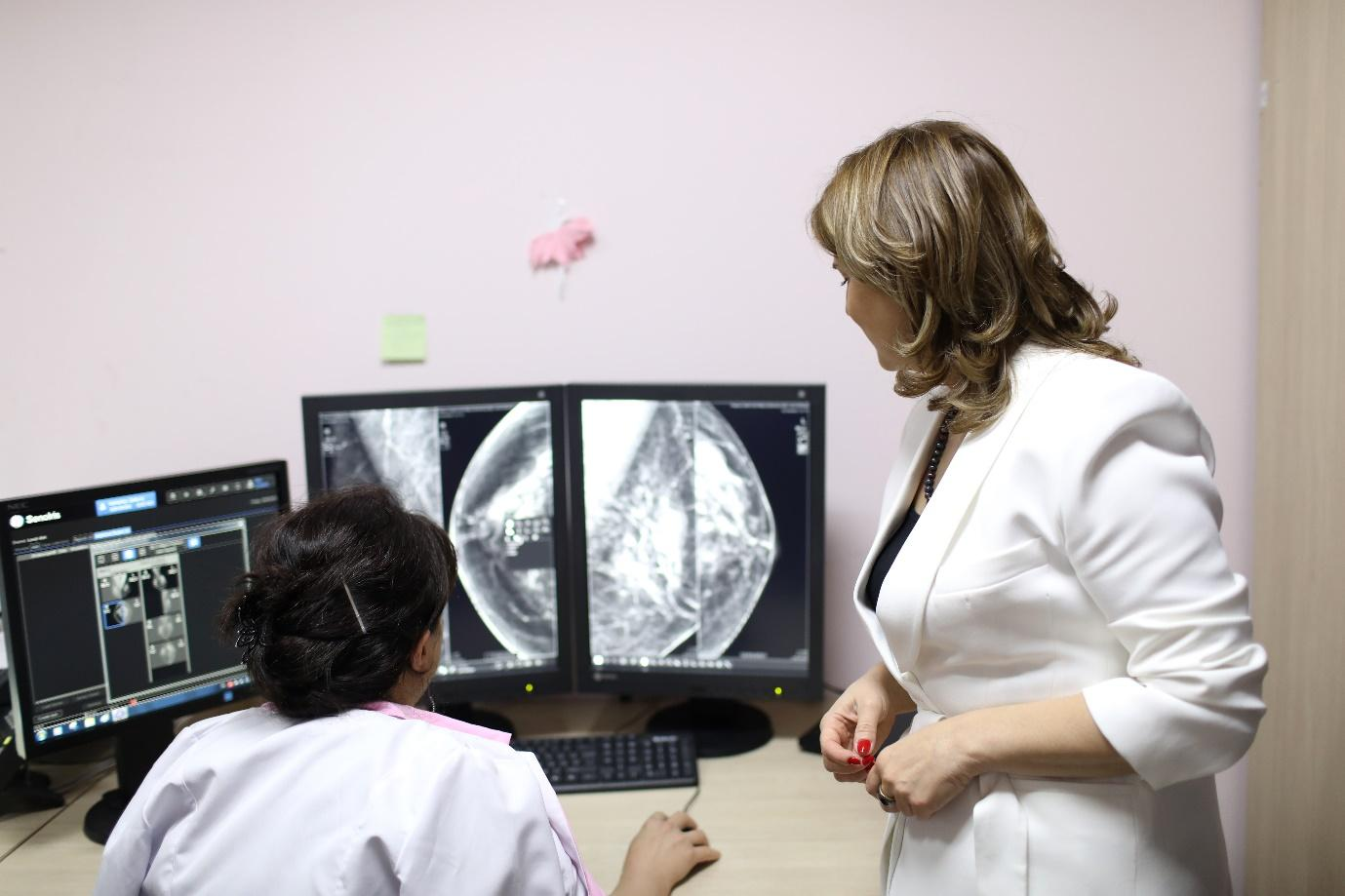
The United Nations Population Fund (UNFPA) is dedicated to ensuring a world where every pregnancy is wanted and every childbirth is safe. In Georgia, UNFPA actively advocates for and supports integrating maternal health services across full continuum of care through fostering strong, collaborative and sustainable partnerships within and beyond the health sector. UNFPA collaborates closely with the government, professional associations and academia to implement comprehensive measures that protect and uphold women’s rights to accessible, high-quality healthcare and support services, including safe pregnancy and childbirth.
Strengthening evidence-based policy frameworks and institutional mechanisms to ensure the delivery of integrated sexual and reproductive health (SRH) services for women and youth remains a key priority for UNFPA in Georgia. Programme interventions focus on enhancing policy frameworks and supporting health institutions to guarantee equitable access to high-quality, comprehensive reproductive health services, including maternal care and cervical cancer screening through innovative approaches. Additionally, these efforts address the unmet need for family planning via targeted advocacy and specialized technical support.
A recent publication “Exploring Obstetric Violence in Georgia” conducted with the support of UNFPA Georgia, reveals that women often choose a health facility or maternity hospital based on factors such as proximity, socio-economic status, and the availability of a “safe” environment. This preference also translates to the increasing trend of women seeking care in the capital and other large cities.
In Georgia, there has been significant growth in telemedicine which facilitates consistent delivery of quality healthcare services. This trend is supported by doubling of the number of households with internet access in recent years to an impressive 89 per cent in 2023. The increased connectivity, combined with growing demand for quality healthcare services, creates an enabling environment where digital health solutions can thrive.
To ensure that all women and girls can access a wide range of healthcare services regardless of their place of residence, strong collaboration between UN agencies and state institutions remains essential. In this context, telemedicine emerges as a powerful digital tool.
The project, “Minimizing the impact of the COVID-19 outbreak in Georgia through telemedicine and digital health solutions,” is an example of a successful cooperation between UNFPA, other UN agencies (WHO, UNFPA, UNICEF and UNOPS), the Ministry of Health (MoH) of Georgia, and the European Union. This initiative leverages modern digital communication technologies to deliver quality medical services in a manner that is both time-efficient and cost-effective for patients.
The project aims to reduce maternal mortality, preventable newborn deaths, and premature mortality caused by non-communicable diseases. It also seeks to ensure universal access to sexual and reproductive healthcare services through a combination of policy level interventions and adoption of innovative technologies.
Cervical cancer remains the second most common cause of cancer-related deaths among women in Eastern Europe and Central Asia. To improve early cancer detection in Georgia and lower mortality rates, UNFPA Georgia has been working to make screening programs more accessible, particularly for women living in rural and hard-to-reach areas, by leveraging on telemedicine.
One of the key achievements of the project is the establishment of an electronic queue management solution for cervical cancer screening. This system aims to effectively reach the target group and encourage timely participation in screening programs, ensuring early disease detection and prompt access to appropriate interventions.
Thanks to the electronic queue management solution, women from various regions across Georgia can now register for screenings for cervical, breast and thyroid cancer at a time and location that suits them best, with support from their family doctors.
In the project, national clinical protocols for telemedicine along the continuum of maternal care, as well as the safe abortion protocol, have been updated in alignment with the international standards. Additionally, the Ministry of Health has revised the state antenatal care (ANC) program to incorporate these protocols, introducing a “payment parity” to ensure that the state program reimburses two online ANC visits at the same rate as in-person consultations.
Based on the updated protocols, an online training module at Tbilisi State Medical University (TSMU) on the remote delivery of ANC services has been revised and integrated into the Continuous Medical Education system. To date, 122 obstetricians and gynaecologists have completed these updated courses.
The core aim of the telemedicine initiative is to simplify access to healthcare services and ensure equitable availability for everyone, regardless of their place of residence. This objective is supported by the establishment of the online “Experts’ Hub"—a platform designed to enable rural and district antenatal care providers to consult acknowledged subject-matter experts for a second qualified opinion. Additionally, alternative online 5th and 7th antenatal care visits26 have been introduced, specifically targeting women in remote areas. The pilot phase for these initiatives begun in December 2024.
26 A total of 8 antenatal visits are available free of charge for women in Georgia. The state budget fully covers these 8 visits. Through the pilot initiative, women can choose to receive 2 out of 8 visits online and doctors can receive the same renumeration as for the physical meetings. The 5th and 7th visits were selected as most appropriate for telemedicine by the experts due to the specific types of tests performed during these sessions which are also possible through online consultations.
Moreover, an e-application is set to be developed to address unmet reproductive health needs, with a particular focus on family planning services, including access to contraception. This initiative will be especially beneficial for women living in remote areas.
As Georgian obstetric-gynaecologist Maka Chikovani explains, “it is mutually convenient for both patients and doctors to have the opportunity to discuss health-related issues online. This approach saves time and money, reduces travel-related challenges, and ensures the delivery of quality and timely services—ultimately leaving no one behind.”